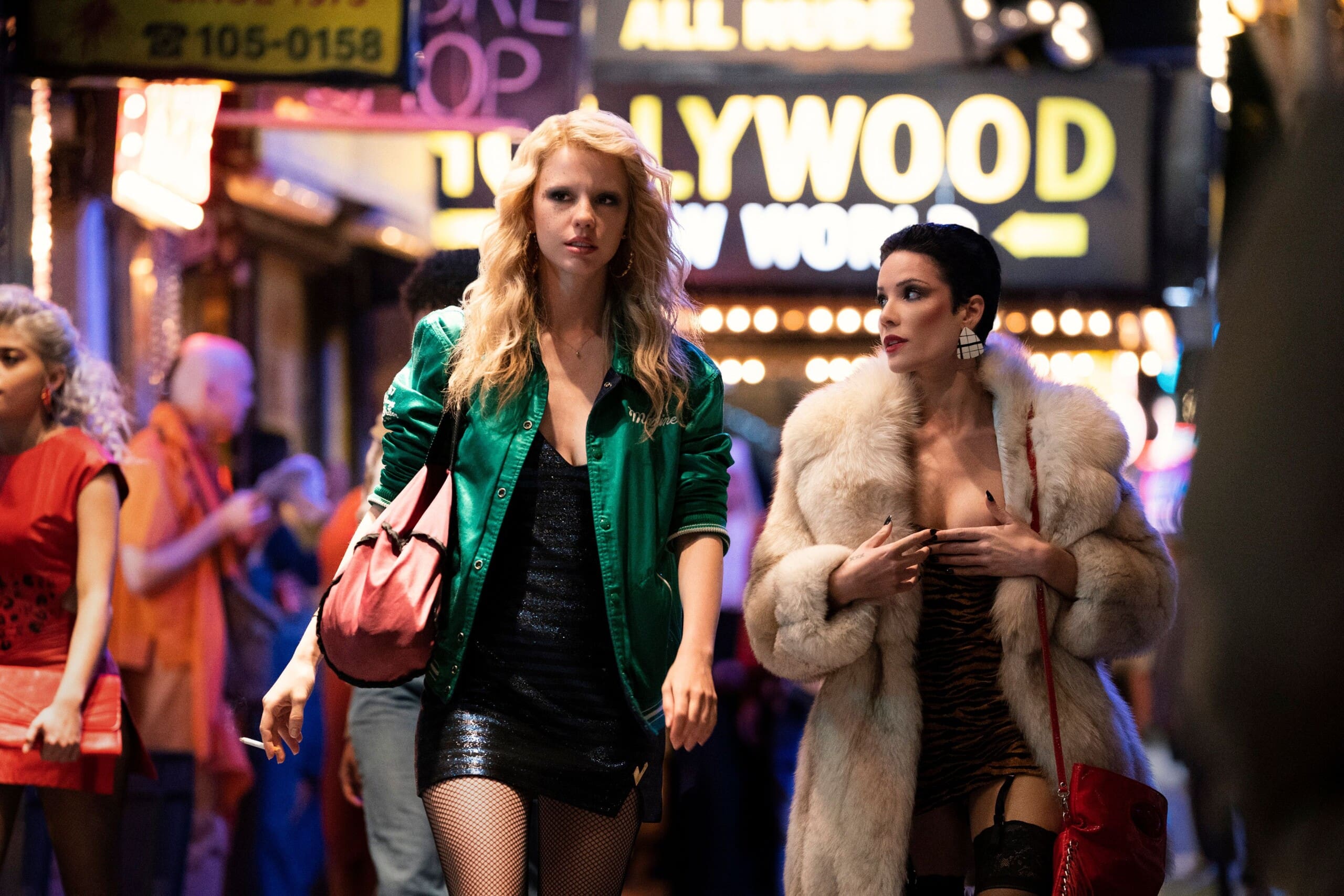
Writer-director Ti West’s X trilogy has been many things, from raunchy ’70s slasher in its first installment to a melodramatic mid-century-set prequel that delivered a villain origin story. Now comes MaXXXine, a slasher set in ’80s Los Angeles that feels like the movie West meant to make the whole time.
Once again it stars Mia Goth as Maxine. Hoping to forget the events of 2022’s X and, at 33, nearing the expiration date for her illustrious porn career, Maxine gets a chance to become a legitimate actress when she’s cast in a buzzy new horror sequel, The Puritan 2. However, her chance at stardom is threatened when a mysterious figure from her past—who just might be the infamous Nightstalker — starts killing her friends and leaving her cryptic notes.
The news clips of LA’s Nightstalker terror are just one of the ways West establishes the film’s place and mood. He, production designer Jason Kisvarday and costumer Mari-an Ceo aren’t so much recreating the ’80s as doing ’80s Hollywood pastiche. Every shot of Hollywood Blvd., where Maxine lives and works, is bathed in neon and grime, an Angelyne billboard looming over the sidewalk. Maxine’s hair is big, her eyeliner is heavy and her full denim number is easy to unzip when she’s asked to show her breasts in her Puritan 2 audition. Likewise, her pristine Mercedes and the decorative goose full of coke at her peep show job convey the type of life Maxine is living. Even the subtle video tape tracking effect West uses in the opening credits conveys a certain level of schlockiness and perhaps even more than the previous installments, the foreboding yet silly tone encourages the audience to have fun.
Though the series has primarily been a showcase for Goth’s talents, West has always filled the supporting cast with talented performers and particularly in this installment, they emphasize that MaXXXine is more campy show business satire than horror. While Kevin Bacon as a smarmy, Louisiana bayou-born PI hired by Maxine’s mysterious stalker and Bobby Cannavale as an obnoxious cop who can’t stop talking like he’s in an audition for T.J. Hooker are mostly there for comic relief, those directly connected to the industry are sharper, more complex.
While Giancarlo Esposito as Maxine’s agents certainly draws laughs, there’s also a sinister, snarky quality to the character. On some level, it feels as if West is playing with the audience’s knowledge of Esposito’s career, knowing that when he says he’s more dangerous than he seems, we believe him because, despite his silly toupee, his actor is, after all, Breaking Bad’s Gus. While that quality is narratively useful, it also subtly emphasizes that Maxine has to sacrifice something—perhaps some part of her soul if not literal blood—to the Hollywood machine to attain the stardom she so desperately wants. Indeed, the other characters (perhaps especially the almost sexually charged power dynamic she shares with Elizabeth Debicki’s cold, determined director character) are there to emphasize what’s at stake for Maxine in trying to escape what happened at the farm and legitimize herself. They are the texture and background that allow Maxine and therefore Goth to once again showcase why the franchise has made her into a scream queen.
Certainly Maxine struggles to push through her past trauma as her unseen stalker and horrible memories jeopardize her big break, but she is our hero, our Final Girl, and the audience wants her to figure it out. While Goth arguably has less to do here than the previous two installments, she commands the screen with the same skill she always has. When an attacker dressed as Buster Keaton corners Maxine in an alley, the audience cheers as she takes control and brings their confrontation to a gore-y end. When Bacon’s character chases her through the studio backlot and into Psycho‘s Bates house, we hope she can push him the downstairs like Arbogast before him. Though Maxine hasn’t been our hero for the whole franchise, Goth has, and the film is just as much about seeing her do crazy shit as watching the plot do whatever it’s going to do.
Though MaXXXine by no means deviates from its predecessors in gore or camp, this is the first installment that feels as if all of those elements mesh perfectly. The inherent campiness of Hollywood in the ‘80s perfectly suits the pulp horror West wants to deliver. Even more so, Goth has finally been given material that doesn’t feel self-consciously obligated to prove how versatile or talented she is. Goth has become the star Maxine wants to be. Long may she reign.

